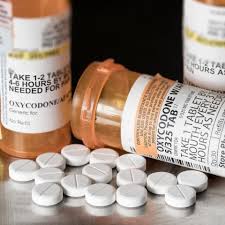 Albertson Companies, Inc., et al. v. County of Dallas (No. 14-23-0279-CV) and SPCSA PLLC a/k/a Shavano Oaks Pharmacy v. County of Bexar (No. 14-23-00299-CV) (May 21, 2024) involved a consolidated appeal from interlocutory orders denying motions to dismiss under Chapter 74, CPRC. Dallas and Bexar Counties sued numerous manufacturers, distributors, and retail pharmacies for “dispensing opioids while systematically ignoring red flags indicating that the opioids were being abused and diverted secondary, criminal markets.” The suits were consolidated in an MDL pretrial court in Harris County. In these cases, the pharmacies moved to dismiss the counties’ claims under Chapter 74 because the counties failed to serve expert reports within 120 days of their original answers, as required by statute. The MDL court denied the motions. The pharmacies sought interlocutory relief.
Albertson Companies, Inc., et al. v. County of Dallas (No. 14-23-0279-CV) and SPCSA PLLC a/k/a Shavano Oaks Pharmacy v. County of Bexar (No. 14-23-00299-CV) (May 21, 2024) involved a consolidated appeal from interlocutory orders denying motions to dismiss under Chapter 74, CPRC. Dallas and Bexar Counties sued numerous manufacturers, distributors, and retail pharmacies for “dispensing opioids while systematically ignoring red flags indicating that the opioids were being abused and diverted secondary, criminal markets.” The suits were consolidated in an MDL pretrial court in Harris County. In these cases, the pharmacies moved to dismiss the counties’ claims under Chapter 74 because the counties failed to serve expert reports within 120 days of their original answers, as required by statute. The MDL court denied the motions. The pharmacies sought interlocutory relief.
In an opinion by Chief Justice Christopher, the court of appeals affirmed the trial court order. The counties argued that Chapter 74 did not apply to them because they were not “claimants” within the meaning of the statute, their claims were not health care liability claims, and that pharmacies are not physicians or health care providers. Sec. 74.001(a)(2) defines “claimant” as “a person, including a decedent’s estate, seeking or who has sought recovery of damages in a health care liability claim.” The question before the court, consequently, was whether a county is a “person” subject to the definition. Turning to the common law meaning of the term, the court referred to the Black’s Law Dictionary definition, which includes a “human being,” an “entity (such as a corporation) that is recognized by law as having the rights and duties of a human being,” or the “living body of a human being.” Noting that these do not mention counties or political subdivisions, the court reviewed relevant appellate decisions, particularly precedent from SCOTX, and the 14th and Austin Court of Appeals. These cases generally agree that the state, as a “sovereign,” is not a person, unless a statute specifically provides otherwise. A county is not sovereign entity under SCOTX authority, but it can (and does) share state sovereignty. The 14th Court has held further that a county is not a person at common law.
The pharmacies contended that four cases say, including two from the 14th Court, one from SCOTX, and one from the Corpus Christi court, have concluded that the Code Construction Act, not common law, govern the definition of “person” and that this definition includes counties. The court disagreed, holding that none of these or other cases cited by the pharmacies held that governmental entities were “persons” for purposes of Chapter 74. The court thus affirmed the trial court’s denial of the pharmacies’ motion to dismiss under Chapter 74.
This decision seems almost undoubtedly correct from a statutory construction point of view, but from a policy point of view, the Legislature might want to take a look at including governmental entities in the definition of a “claimant” when they sue health care providers for what are clearly health care-related judgments and decisions. Chapter 74 specifically applies to licensed pharmacists, but only to the extent of dispensing medications that lead to a health care liability claim. It would have been interesting to see how the court might have resolved this issue since the counties’ claims clearly implicated the dispensation of medications that allegedly resulted in adverse health effects (though other claims involved diversion of drugs to criminal markets, which would presumably not fall under Chapter 74). In any event, it’s not clear to us why a governmental entity that sues a health care provider for medical negligence should not have to serve an expert report, just like any other plaintiff.





